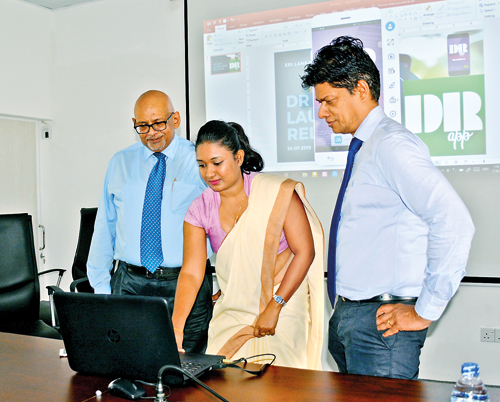
Getting the Right to Information (RTI) has been a long-awaited process for democracies, especially in a country like ours where corruption and misuse of public funds is rampant. The Parliament passed the RTI Act in June 2016 as part of the government’s 100-day work pledge, and it came into force this February. Despite the Act being passed over a year ago, many government offices were unaware of their obligation to provide information upon request, and were unprepared. Ranga Kalansooriya, the Director General of Information stated that fewer than 25% of the population (including public sector employees) were aware of information pertaining to the Act. However, Transparency International Sri Lanka (TISL) has been actively campaigning to change this and make people—including those at the grassroots—more aware of what having the RTI means to them and how they could utilise it. They also launched RTIwatch, a watchdog to monitor implementation, as opposed to being an implementer.
What You Can Use The RTI For

rtiwatch.lk
While the Right to Information can be—and is—utilised to gather information by the media, it can also be used to learn about government processes; like what you need to do to get your EPF/ETF, what requirements are needed to admit your child to school, and so on. You can avoid bureaucratic processes by going directly to the Information Officer: a designated official appointed in each ministry.
The information one receives from the RTI is public, and can be disseminated as such. To date, mainstream media, including organisations like Groundviews and Transparency International, have submitted RTI requests in public interest. A citizen journalism site, the Groundviews piece published mere months ago—in July, to be specific—highlighted not just the fact that obtaining information is still difficult as several major state institutions are yet to respond promptly to filed RTI requests, but also focused on their general inefficiency.
To date, people have requested for information on their family members’ mysterious disappearances, investigations into police brutality, and politicians’ asset declarations.
Relaunching RTIwatch

rtiwatch.lk
On 28 September, TISL relaunched RTIwatch, an audio enabled trilingual website.
The purpose of the site is to monitor the Sri Lankan government’s Open Government Partnership initiative which aims to increase civic participation and improve public services, by being transparent and accessible to the public. The tracker keeps record of whether or not government agencies have kept their word and carried out promises made in the National Action Plan, between the timeframes of November 2016 to June 2018. With a drop-down option, it monitors the government’s commitment towards achieving certain milestones under specific themes: health, education, information, and environment, to name a few. It keeps tab on projects which are initiated, in progress, stuck, complete, and incomplete, with all data updated manually by TISL.
Speaking at the launch of the website, TISL Executive Director Asoka Obeysekara pointed out how far Sri Lanka has advanced in terms of utilising the RTI.
“One year ago, we didn’t know how to put the RTI to use, but look at how far we’ve come; from families finding out about their loved ones who have disappeared, to public interest RTI requests…having the right to information is crucial for the concept of an Open Government,” he added.
The government still has a few kinks to iron out: not all ministries are aware of how RTI requests function, or even of who their Information Officers are. Multiple attempts to contact relevant officials at the Ministry of Finance and Mass Media for queries about the training of the Information Officials failed, as did contacting the RTI Commission. The Commission’s Director General Piyatissa Ranasinghe told Roar Media that neither he nor the Commission had a hand in training the IOs, and that it was the respective ministries’ responsibility.
However, there are media reports of him stating that his Ministry was responsible for the training of the IOs, and that there have been numerous seminars on the topic.
“We have also completed our Information Officer’s Handbook under the USA aid project. At the end of May we will be starting the IO’s three day training with the assistance of Sri Lanka Institute of Development Administration, Sri Lanka Institute of Local Governance and Management Development Training Units in the Provinces and other training authorities in the public sector.While these three agencies will provide the training we will provide the intellectual assistance, training material, training curriculum and other facilities,” Ranasinghe says in The Daily Mirror.
How the training sessions are conducted is vague at best. According to TISL’s RTI Manager Sankitha Gunarathne, the Ministry of Mass Media issued a circular last October, instructing other ministries to nominate officials suitable for the post. However, many of the names which were submitted were of department heads—not officials trained or designated to be Information Officers. However, “…the State is actually being on the ball,” she told Roar Media when asked about the government’s tendency to forget about the commitments made. So far, Divisional Secretary officials are being trained, and the Media Ministry has promised to upload files of their IO training programmes soon, she added.
Journalists on the hunt for stories are often shuttled from one department to the other just to submit their requests, but this is, at least, a first step. To quote Obeysekara once again, the long term goal of the RTI is to have zero requests from the public—implying that the State proactively discloses information, making the filing of requests redundant. However, until then, it’s up to civilians and civil society organisations to keep pushing for transparency and accountability—which is how monitors like RTIwatch come in handy.
Cover image courtesy rtiwatch.lk








